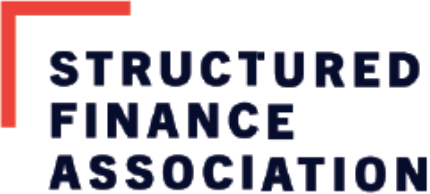The Volcker Rule Must Not Limit or Restrict Securitization
article by SFA
Main Takeaway
SFA’s recent comments to the U.S. government agencies charged with implementing the Dodd-Frank Act’s “Volcker rule” stress that the rule must accurately capture the intention of the statute without impeding securitization transactions.
Background
The Dodd-Frank Act’s “Volcker rule,” finalized in 2013, aimed to prohibit proprietary trading by regulated banks and rein in banks investing in private equity firms and hedge funds. But the regulations as written have had unintended consequences on the securitization market. That reality flies in the face of the statute’s stated intention not to limit or restrict the ability of banking entities to sell or securitize loans.
Recognizing the need to fine tune some aspects of the initial regulations mandated by Volcker, the regulatory agencies charged with its implementation have requested public input over the past few years and issued a re-proposal.
SFA’s Key Points
- While the Volcker rule specifically states its intention is not to limit or restrict the ability of banking entities to sell or securitize loans, the loan securitization exclusion (LSE) definition of loans is drafted so narrowly that it fails to facilitate many common asset securitization structures.
SFA’s Recommendation: Modify the LSE definition so that it:
- Clearly permits issuers relying on the LSE to hold leases and other assets that are not securitized in the form of securities.
- Does not require issuance of an asset-backed security.
- Tests whether a securitization is primarily backed by qualifying assets that are not impermissible securities or derivatives.
- The definition of “ownership interest” is so broad and ambiguous that the legal community has difficulty opining that even the most senior classes of debt instruments commonly issued by securitization issuers are exempt.
SFA’s Recommendation: Redefine ownership interests to remove “other similar interest” or modify the scope of “other similar interest” to make it more workable in practice
- In either case outlined above, there should be a safe harbor exclusion for ordinary debt instruments used by banking entities to sell or securitize loans.
- The Volcker rule also provided a qualifying asset-backed commercial paper (ABCP) conduit exclusion intended to be of use to most bank-sponsored ABCP programs in existence at the time of the rule’s adoption. However, the exclusion was written so narrowly that it has been of very little practical use.
SFA’s Recommendation: Modify the qualifying ABCP conduit exclusion so that it:
- Does not require the advising banking entity to assume all risks associated with the securities issued.
- Is useful to more customer-facing bank-sponsored ABCP issuers.

